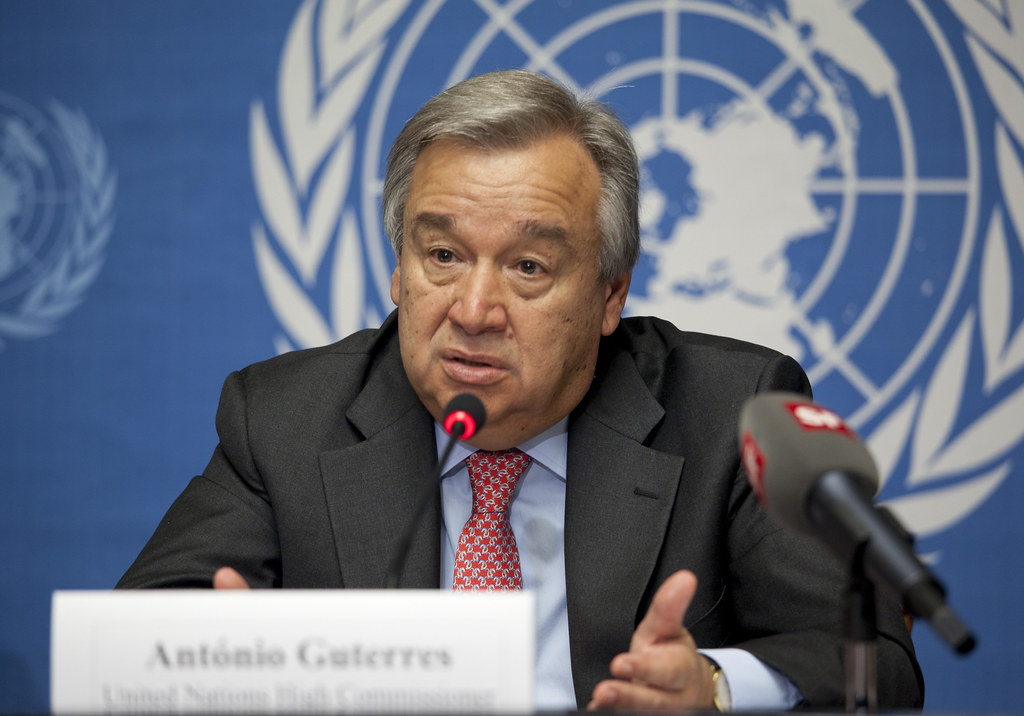The United Nations is holding a closed-door international meeting on Afghanistan in Qatar between 1-2 May.
The Taliban administration has not been invited to a conference that United Nations Secretary-General Antonio Guterres is hosting with special envoys on Afghanistan from several countries in Doha this week, a top UN official said on Friday.
“The Secretary-General has not extended an invitation to the de facto authorities,” UN spokesperson Stephane Dujarric confirmed.
The United Nations is holding a closed-door international meeting on Afghanistan in Qatar between 1-2 May in a bid to find a “durable way forward” for the crisis-stricken country.
Last week, speculations over a possible recognition of the acting Afghan government emerged on Monday after the UN’s Deputy Secretary-General Amina Mohammed hinted towards “baby steps” in recognising the Taliban.
She had suggested last week that the meeting in Doha “could find those baby steps to put us back on the pathway to recognition.”
The remarks forced the UN to clarify that the meeting would not be centred on potential international recognition of the Taliban administration.
Dujarric said the meeting in Doha is instead geared towards a focus on reigniting “the international engagement around common objectives for a durable way forward on the situation in Afghanistan”.
To date, the Taliban-led administration has not been recognised by any country since it militarily seized power in 2021.
Last year, the UN General Assembly approved a postponement of Kabul’s request to appoint an ambassador at the intergovernmental organisation for the second time.
Qatar’s engagement in Afghanistan
Qatar has hosted the Taliban’s political office in Doha since 2012 and has served as a key mediator between the group and the former Afghan administration as well as the west.
The Gulf state has become a platform for dialogue between the international community and the Taliban, especially in the aftermath of the group’s 2021 takeover of Kabul.
Since then, Doha has repeatedly called on the international community to avoid isolating Afghanistan, urging them to prioritise the need to address the humanitarian situation on the ground.
Most notably, the Gulf state managed to bring the former Afghan government and the Taliban to the table of negotiations in 2020 in an effort to reach a peaceful settlement.
During the same year, Qatar brought officials from Washington and the Taliban together following more than a decade of war to produce the Doha Agreement.
Pressure on the Taliban
In recent years, Doha has doubled down on its calls on the interim Afghan administration to allow Afghan women and girls to pursue education following the Taliban’s introduction of oppressive measures.
Qatar’s prime minister and foreign minister said in January that Doha has been in contact with the interim government to understand the rationale behind the restrictive policies towards women and girls.
The top diplomat told CNBC at the time that Doha cannot see such policies rationalised from either a religious or cultural perspective, and confirmed his country was involved in consultations with other Muslim nations to “deal” with the situation.
“It’s just more and more provoking and making the situation much worse for them and for the Afghan people, we’ve been trying to reach out recently after these decisions take place. We’ve been trying also through other means jointly with other Muslim countries to talk to them and to go together,” Sheikh Mohammed bin Abdulrahman Al Thani said.
The Qatari official also vowed that Doha will stand with and support the women in Afghanistan.
“We will not exert any effort in order to make sure that we are helpful for them and to make sure that these kinds of decisions are not happening,” Sheikh Mohammed said.







